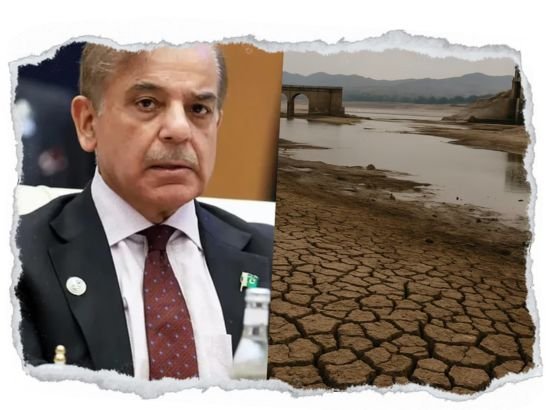
Following the India Indus Treaty Suspension, Pakistan is facing a worsening water crisis that has pushed the country’s key agricultural and power generation sectors into turmoil. The disruption has coincided with the critical kharif crop sowing season, severely affecting food security and rural livelihoods.
India announced the suspension of the Indus Waters Treaty after a deadly terror attack in Pahalgam, Jammu & Kashmir. Indian Prime Minister Narendra Modi reiterated a hardline stance, declaring that “blood and water cannot flow together.” This move, aimed at pressuring Pakistan over cross-border terrorism, has had far-reaching hydrological and geopolitical consequences.
According to the Indus River System Authority (IRSA), water levels in Pakistan’s two largest dams — Mangla on the Jhelum River and Tarbela on the Indus River — have fallen sharply. Mangla Dam’s current storage stands at just 2.7 million acre-feet (MAF), well below its capacity of 5.9 MAF. Tarbela Dam holds only 6 MAF out of its full capacity of 11.6 MAF.
IRSA has warned that the shortfall threatens irrigation in Punjab and Sindh provinces, which are heavily dependent on these water reserves for crop cultivation and electricity generation. The authority emphasized the need for cautious and efficient water management to mitigate the crisis.
In addition to reduced flows from the Jhelum and Indus Rivers, Pakistan is also grappling with lower discharges from the Chenab River, compounding the drought-like conditions. These developments arrive at a time when Pakistan’s economy is already under severe strain, with ongoing inflation, rising debt, and food insecurity.
Pakistani Prime Minister Shahbaz Sharif has repeatedly raised the issue on global platforms, urging India to resume talks on water-sharing. However, India has categorically refused to engage in bilateral dialogue beyond the topics of cross-border terrorism and Pakistan-occupied Kashmir (PoK).
The water scarcity is not just an environmental issue but a geopolitical flashpoint that could escalate tensions in the region. Pakistan has termed India’s actions as a violation of long-standing international agreements, while India maintains that the treaty allows for such measures under extraordinary circumstances.
As the crisis deepens, experts warn of a looming agricultural disaster in Pakistan unless immediate remedial actions are taken. Without a resolution, both regional stability and millions of livelihoods remain at risk.